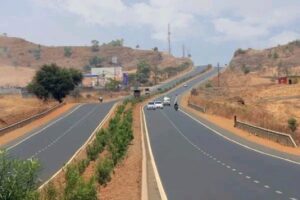On the 6th of February 2024, a local publication, The Masvingo Mirror on X formerly Twitter, had a post to the effect that several villagers in Masvingo Province had appeared at the Gutu Magistrates Court charged with illegal settlement on state land. This includes land bought illegally in resettlement, communal and urban areas.
In a statement dated 13 February 2024, the Zimbabwe Republic Police disclosed that it was carrying out an operation: “No to land barons and illegal occupation,” with a total of 3, 775 suspects having been arrested countrywide. The ZRP said 985 convictions had been made while 3, 360 cases were pending.
The development has raised some questions among Zimbabweans regarding land ownership, allocation, administration, and rights. Below we try to answer some of the questions around this topical and contentious issue by examining how agricultural and communal land are administered in Zimbabwe.
Agricultural Land
Definition of agricultural land
Agricultural land, according to Section 72 of the Constitution of Zimbabwe, refers to land used or suitable for agriculture – horticulture, viticulture, forestry, or aquaculture or for any purpose of husbandry, including the keeping or breeding of livestock, game, poultry, animals or bees; or the grazing of livestock or game. Agricultural land according to the same section of the supreme law “does not include Communal Land or land within the boundaries of an urban local authority or within a township established under a law relating to town and country planning or as defined in a law relating to land survey.”
Ownership and administration of agricultural land
All agricultural land is vested in the state, according to Section 290 of the current Constitution, and can only be occupied by a lease or other agreement with the State (Section 291 of the Constitution). Section 292 of the Constitution reads: “The State must take appropriate measures, including legislative measures, to give security of tenure to every person lawfully owning or occupying agricultural land.”
Communal Land
Definition of Communal Land
Section 332 of the Constitution defines the term “Communal Land” as follows: “Communal Land” means land set aside under an Act of Parliament and held in accordance with customary law by members of a community under the leadership of a Chief.” Section 3 of the Communal Land Act on the other hand, reads: “Communal Land shall consist of land which, immediately before the 1st February, 1983, was Tribal Trust Land in terms of the Tribal Trust Land Act, 1979 (No.6 of 1979), subject to any additions thereto or subtractions therefrom made in terms of section six.”
Ownership and administration of communal land
Communal Land, according to Section 4 of the Communal Land Act, shall be vested in the President, who shall permit it to be occupied and used in accordance with that Act. Under Section 282 of the Constitution traditional leaders are given the function of administering Communal Land “in accordance with an Act of Parliament”. Section 8 of the Communal Land Act says a person may occupy and use Communal Land for agricultural or residential purposes with the consent of the rural district council established for the area concerned. Permits to occupy communal land is required if the use is for administrative purposes of the State or a local or like authority, religious or educational purposes in the interests of inhabitants of the area concerned, hospitals, clinics or other such establishments for the benefit of inhabitants of the area concerned, hotels, shops or other business premises and any other purpose whatsoever which, in the opinion of the rural district council, is in the interests of inhabitants of the area concerned (Section 9 of the Communal Land Act).

Setting aside communal land for other purposes
Section 10 of the Communal Land Act empowers the Minister of Local Government to set aside part of the communal land for other purposes including the establishment of a township, village, business centre or industrial area and irrigation scheme. Such land, however, remains part of Communal Land unless the President declares that it shall cease to be so. Any person who fails to depart permanently from any land in accordance with a statutory instrument shall be guilty of an offence and liable to a fine not exceeding level six or to imprisonment for a period not exceeding one year or to both such fine and such imprisonment. Section 6 (3) of the Act says whenever any land ceases to form part of Communal Land in terms of a declaration published in terms of subsection (1), such land shall thereupon become State land until it is granted, sold or otherwise disposed of in terms of the same Act or any other law. Anyone who loses their right to occupy land as a result of this is entitled to, be given a right to occupy or use alternative land or compensation payable from the Consolidated Revenue Fund. (Section 12 of the Communal Land Act).
Acquisition of land by President
Section 3 of the Land Acquisition Act gives the President, or any Minister duly authorised by the same to “compulsorily acquire any land, where the acquisition is reasonably necessary in the interests of defence, public safety, public order, public morality, public health, town and country planning or the utilisation of that or any other property for a purpose beneficial to the public generally or to any section of the public.”
Conclusion
Much of the land in Zimbabwe, according to the country’s laws, is vested in the State and the President who can have a final say on use and utilisation. The government is empowered to gazette land for a special purpose or any other use it deems fit or necessary. Legal experts however say there is a need to reform laws like the Communal Land Act and The Mines and Minerals Act to ensure rights of people facing eviction from land are fully protected as enshrined in Section 71 of the Constitution.











